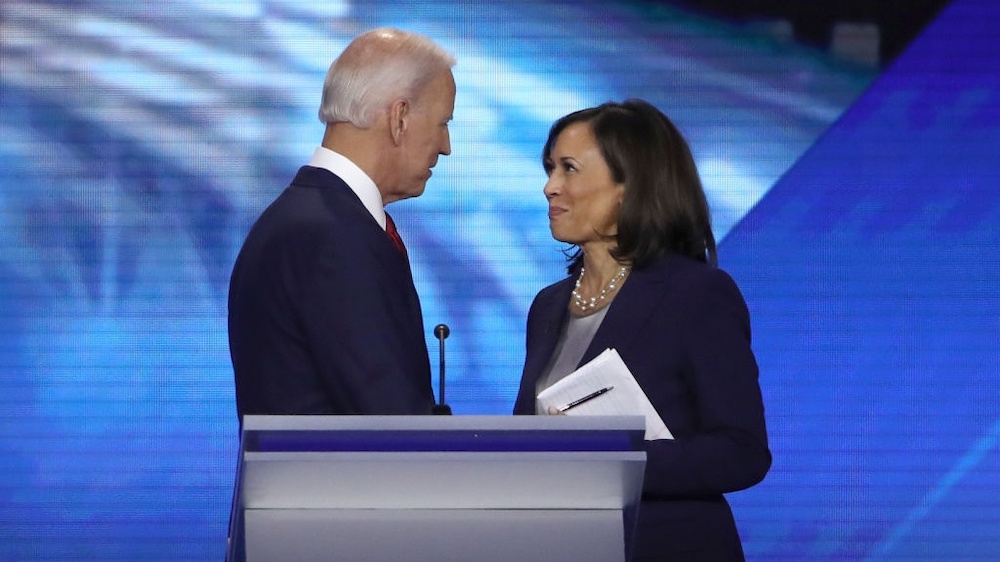If you’re interested in sharing your opinion on any cultural, political or personal topic, create an account here and check out our how-to post to learn more.
____
For my sanity, I have to believe that Joe Biden and Kamala Harris will win the November 3 election. My biggest focus now is how Black people can be prioritized during the first 100 days of the Biden-Harris administration. The policies pursued during the first 100 days of a presidential administration represent the priorities that are most important to an administration and policies that are most likely to become law.
In September, Scott Mulhauser, former chief of staff to Vice President Joe Biden, and Bridgett Frey penned a piece stating:
“The question every cause, coalition and corporation should really be asking itself is what the first 100 days of a potential Biden-Harris administration look like — and what can they do about it. We all know pandemic recovery — both in health and in the economy — will be first on the list. Now is the time to figure out who and what will be second, and how to position yourself to help determine it.”
Assuming that the pandemic recovery will be the first priority of the Biden-Harris administration, the second priority of the administration must be implementing a Black agenda. This summer, the biggest domestic news stories were COVID-19 and Black Lives Matter protests. We saw multi-racial protests around the value of Black lives. Those diverse gatherings indicate that centering the political priorities of Black folks has mainstream support. Black people are more abused, poorer and more disenfranchised than our fellow citizens are. During the first 100 days of the Biden-Harris administration, we need federal policies that specifically address the plight of Black Americans.
In January, National Review of Black Politics published a piece by Dr. Mathew B. Platt, entitled, “Hoodies on the Floor: Exploring Black Members’ Legislative Response to Police Brutality.” In the piece, Platt writes, “Given the prominence and persistence of police brutality as a problem facing Black people, it is surprising how few bills were introduced between 1973 and 2016.” Platt presents a critique of Black members of Congress for not sponsoring a significant number of bills which address police brutality. Platt also finds that, “MC’s [Black members of Congress] only seek to address the problem during periods of extreme salience, and that attention is not sustained.”
After Biden’s inauguration in January, six months would have passed since the height of the protests around the killings of George Floyd and Breonna Taylor. If Platt is correct, there will be less of an urgency to address issues of police brutality and police reform. We must not squander the first 100 days of the Biden presidency by being complacent about enacting police reform. A future President Biden must take decisive action within his first 100 days in office, to address police brutality. Some version of the George Floyd Justice in Policing Act should be enacted during the first 100 days of the new administration.
Beyond legislation to combat police brutality, Black America needs economic support within the first 100 days of the Biden-Harris administration. On September 28, the Federal Reserve released data from their 2019 Survey of Consumer Finances. The survey showed that “the typical white family has eight times the wealth of the typical Black family.” The Biden-Harris administration must address this wealth gap.
The Black to the Future Action Fund published economic policy prescriptions in their Black Agenda 2020. These proposals range from reparations to implementing a $15 minimum wage and canceling student debt. Within the first 100 days, there needs to be some legislation tied to addressing the staggering wealth gap between Black and white Americans.
Lastly, voting rights need to be protected during the first 100 days of the Biden-Harris administration. Get Out the Vote campaigns are no longer simply reminders to voters about the importance of voting in upcoming elections. Get Out the Vote efforts have turned into public education campaigns on how to circumvent voter suppression laws. Black voters are encouraged to stay in voting lines no matter how long the lines are or how late the hour grows on Election Day. Widespread efforts to suppress the Black vote have led civil rights organizations to support the John Lewis Voting Rights Act. We need this legislation signed in the first 100 days, to protect the Black vote and our democracy.
Black people will be grateful when the Trump presidency is over. Still, our gratitude for the normalcy of a Biden presidency cannot turn into complacency. The Biden-Harris administration must tackle the issues of police brutality, Black wealth and voting rights within their administration’s first 100 days. Black people are used to waiting. Black people will be waiting hours in voting lines to elect Biden and Harris. Black people should not be expected to wait for the implementation of the Black policy agenda.
